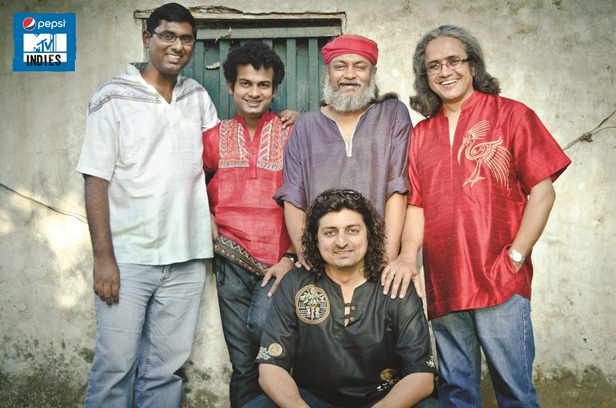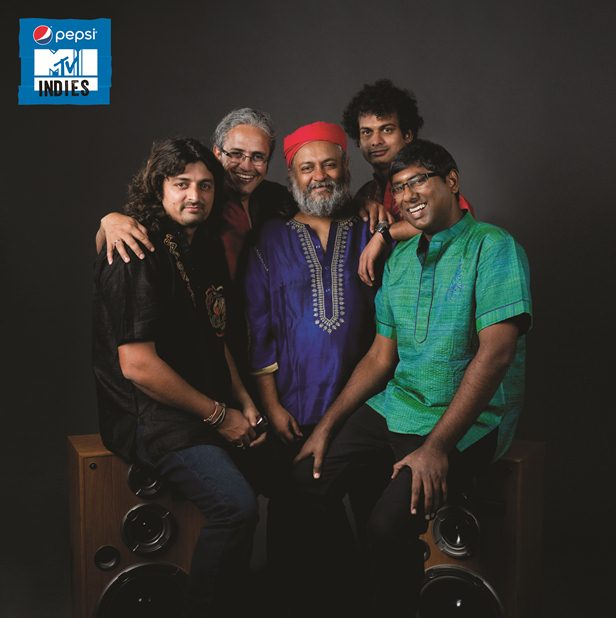For a musician to complete 25 years of successful existence is no mean feat. Particularly so in India, and even more so in the Indie field. Indian Ocean entered that hallowed territory last month, and are celebrating their 25th year with a new album called Tandanu, an album where they have seven songs created in collaboration with seven other musicians (Pt. Vishwa Mohan Bhatt, Shubha Mudgal, Shankar Mahadevan, Karsh Kale, Vishal Dadlani, Selvaganesh Vinayakram, Kumaresh Rajagopalan of Ganesh Kumaresh). Sure, the band isn’t the same in composition now as it started off, composition-wise, but they have maintained an identity all through this journey so far which a lot of us would connect with. We decided to catch up with the one surviving member from the original lineup, the great Rahul Ram to talk about Tandanu and about Indian Ocean in general. And here is the conversation:
Like your first song Gar Ho Sake, have all songs from Tandanu had a lot of contribution from the featured artists? I notice that the other six collaborators too are composers in their own rights.
Everybody whom we have collaborated with are fantastic musicians and have contributed immensely to the compositions. Like in Gar Ho Sake, where Shubha Mudgal composed the tune of one entire antara, the other songs also have the collaborators pitching in.
The upcoming videos will tell you exactly the process through which each song was made.
Tandanu the song has undergone multiple iterations. I remember seeing a 2012 youtube upload of that song featuring just you. Then at Coorg you guys collaborated with Shankar Mahadevan. And now that lineup is minus Susmit. So has the song undergone further changes from last year?
Not really. The song is essentially the same from what we played at Coorg. However, with Nikhil Rao coming in the guitar solo has changed completely and we overall have sharpened it a little.
Tandanu the song was conceived at least as early as 2012. And the official premiere of the album happened only last week. Was there some delay in between, or did the ideation as such take long?
Tandanu, the song has been with us for a long time. We got down to work on the album and putting it together from November last year.
You have chosen artists from varied backgrounds for your collaborations. There is Carnatic, Hindustani, film, rock, electronica. Why these artists specifically?
When we thought about this album, we got down to choosing artists whose work we liked. Then our choices became about vocalists, instrumentalists and percussionists – because we wanted a balance. The Hindustani-ness or the Carnatic-ness wasn’t really something we had in mind – it just happened along the way, and we are very glad that it happened.
Going by Vishal’s tweet, Roday has Hindi, Kashmiri and Sindhi. Tandanu has some Kannada in it. Has the plan been to cover all of India with your seven songs? J And do they all have some sort of a central theme to it?
No, not at all. We don’t think like that – the languages are something that happened along the way, and there was no plan in place as such to include as many languages as we can.
We don’t do albums with central themes – except for maybe Black Friday which was a movie. Every song I believe has a unique and different character – for example, while Behney Do (with Karsh Kale) is a sort of youth anthem, Roday (with Vishal Dadlani) talks about displacement of people, Tandanu (with Shankar Mahadevan) is an old Kannada folk song from the Belur-Halebidu region! Hence, each song is different.
You entered your 25th year of existence in April! A comparison between how things were when you started out, and now?
It has been a fantastic journey for sure. When we started out we hardly had any concerts, any recognition and today to reach a stage when we are in our 25th year, is really great.
The Indie music scene has indeed changed dramatically over the last 25 years. Back then it was largely limited to people playing cover versions of Western songs, but slowly and steadily that has changed. There are a lot more festivals as well these days that support Indie music. With internet, publishing and taking your music out has also become a lot easier.
Much has changed for Indian Ocean in recent years. First Asheem, then Susmit. Increased incidence of film projects, particularly for you. How has all this affected the sound of Indian Ocean, if at all? And how do you see this changing things for Indian Ocean going forward?
The only full film project we did was 9 years ago, which was Black Friday. In the meantime, we have only done 1 or 2 songs for a few films.
After Asheem passed away and Susmit left, new people have come in. So the sound of the band was bound to change, but keeping the character of Indian Ocean the same. We were also curious what shape the band would take – but I must say that we are quite happy with the new shape! And I feel this will change further because right now this album has 7 collaborators who’s contribution is felt. The true picture I feel will emerge in the next album – if we do the next album with just the 5 of us.
Some of the other artists in the current scene that you find promising?
Agam, Swarathma and Avial. I also quite like the stage presence of Anthony Daasan.
The album Tandanu is being launched on a song-by-song basis every Saturday, with a behind the scenes video that premieres on Pepsi MTV Indies every Saturday at 8 pm IST, and the song made available on iTunes India. The complete album will be available for digital download after the sixth Saturday from today; tonight it is going to be Behney Do featuring Karsh Kale.





